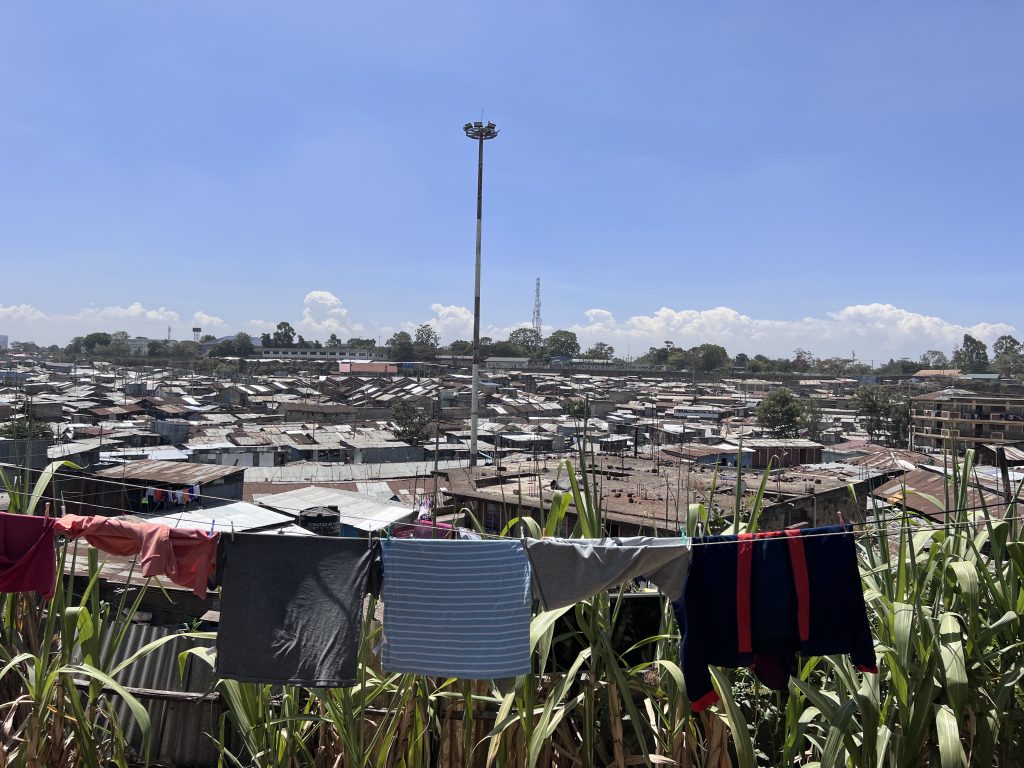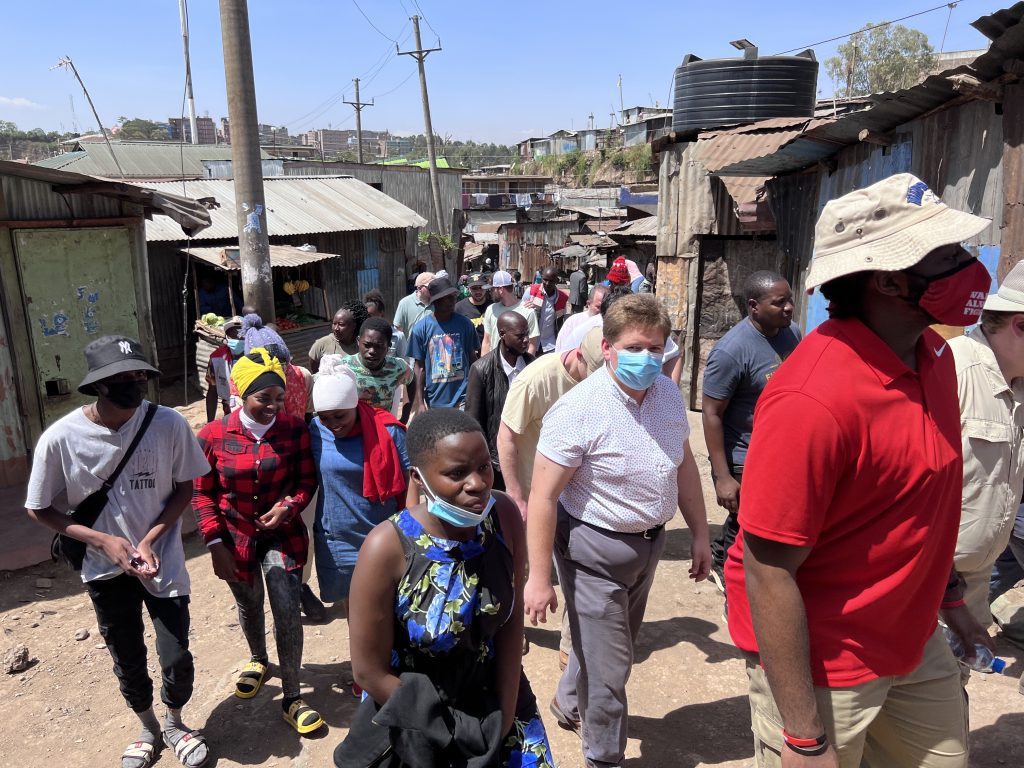By: Professor of Religion Rev. Derek Nelson
Nineteen students and four Wabash College faculty have begun their exploration of the beautiful land of Kenya. The teachers of the class, Rick Warner and Bill Cook ‘66, have been introducing “The History of Christianity in Africa” for seven weeks. But now it’s time for the fellas to see it for themselves.
The late, great Anglican bishop in South America, Desmond Tutu, used to tell this story about Christianity in Africa.
“When the colonizers first arrived, they had the Bible and we had the land. They said, ‘Let us pray.” And we closed our eyes and prayed. When we opened our eyes, we had the Bible and they had the land.”
It’s one of those biting lines that you can see someone grit their teeth to and manage to laugh, a century or two or three removed from the circumstances. But after a rueful giggle, Tutu would become dead serious and conclude with, “But if you plan to oppress someone, let me assure you the very worst thing you can give them is the Holy Bible!”
That story captures a lot about the history of Christianity in Africa. Fervent Christians, alive and energetic, embrace the religious upshot of the colonial mindset. But they also resent it, fight back against it, and claim their own new ways of living and believing.
Not all Christianity in Africa is the product of colonists, certainly, not even in East Africa. Ethiopia, for example, has had major groups of Christians since shortly after Jesus. We got to experience a bit of this in stopping off in Addis Ababa on our way to Nairobi on Friday. Ancient church buildings were visible from our plane and newer ones tower over the city. One of the largest churches in Ethiopia, a Lutheran communion called Church of Mekane Jesu, has 12 million members and is very independent of European and American influence. And the even larger Ethiopian Orthodox Church has been doing things their own way for centuries. Ethiopians also do their coffee their very own way, and it is fantastically delicious, as our students found out.
But Kenya, a country 85% Christian and 11% Muslim, has more Anglicans and Roman Catholics. Their religious history is one of push and pull, with European influence alternating with indigenous resistance. We will try to take it all in — the struggle to maintain hope in the shantytowns of Kibera, outside Nairobi, the inventiveness of teachers finding ways to develop students in challenging conditions, the Spirit alive and blowing through thousands of worshiping voices, the splendor of savannah wildlife with a world capital still visible in the distance.
The bus trip from the airport to our hotel was a raw and awe-inducing eye opener for the students, who talked of how in the US things are more at arm’s length. They were amazed at the friendliness of our Kenyan hosts and neighbors. They saw the challenges of infrastructure, and how that can make everything else more challenging as well.
We have only just begun! But Stay tuned here for the insights, images and convictions of our Wabash students. I will be listening in and trying to capture some of their thoughts in real time to share with Wabash Nation. We want you all to know: we are back to doing immersion learning, we’re doing it in places like Nairobi no matter what it takes to get here, and we need partners in order to do this work well.

